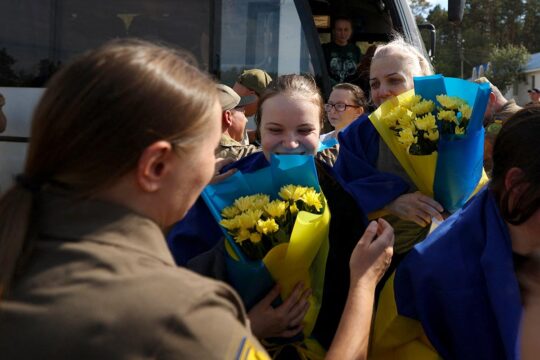Russia on Friday moved to expel 35 US diplomats in a tit-for-tat response after President Barack Obama unleashed a barrage of punishment against Moscow over alleged election interference.
Obama's broadside over cyberattacks sent ties between Russia and the United States -- already at their worst since the Cold War -- to a fresh low less than a month ahead of President-elect Donald Trump taking charge.
The outgoing US leader on Thursday gave 35 alleged Russian "intelligence operatives" based at the country's embassy in Washington and consulate in San Francisco 72 hours to leave the country, and hit Russia's military and domestic intelligence agencies with sanctions.
"We of course cannot leave these stunts unanswered. Reciprocity is the law in diplomacy and international relations," Russian Foreign Minister Sergei Lavrov said in a televised statement, dismissing the US allegations as "groundless".
Lavrov said his ministry had asked President Vladimir Putin to declare 31 employees at the US embassy in Moscow and four at the country's consulate in second city Saint Petersburg personae non gratae.
Russia is also seeking to ban US diplomats from using a holiday home and warehouse in Moscow, Lavrov said, after Obama ordered the closure two Russian compounds in New York and Maryland.
Making good on a promise to punish Putin's government for allegedly trying to tilt the 2016 election in Trump's favour, Obama on Thursday unveiled a broad range of steps against Moscow including the diplomat expulsions.
US intelligence concluded that a hack-and-release of Democratic Party and Hillary Clinton staff emails was ordered by the Kremlin and was designed to put the Republican real estate mogul in the Oval Office.
"I have ordered a number of actions in response to the Russian government's aggressive harassment of US officials and cyber operations aimed at the US election," Obama said in a statement.
In response to the hacks, dubbed "Grizzly Steppe" by US officials, Obama announced sanctions against Russia's military intelligence agency, known as GRU, and the FSB -- the KGB's successor.
- 'Bull in a china shop' -
The Kremlin has repeatedly rejected the US accusations of cyber-interference and spokesman Dmitry Peskov accused the Obama administration of trying to "definitively destroy US-Russia relations which have already reached a low."
Relations between Washington and Moscow have slumped to their lowest point since the end of the Cold War, and Obama has previously imposed sanctions over Russia's actions in Syria and Ukraine.
Peskov said ahead of Lavrov's announcement that Putin would take into account the fact Obama only has some three weeks left in office when responding, insisting Moscow would try not to act like a "bull in a china shop" in the hope of normalising ties once Trump takes charge.
The moves by Obama could also raise further tensions with his successor Trump, who has expressed his admiration for Putin and desire to improve ties with Russia.
Trump has questioned whether Russia really tipped the electoral scale, painting Obama's accusations as a thinly veiled effort by a Democratic president to delegitimise a Republican victory.
Trump said that while he believes the US should "move on to bigger and better things," he would meet with intelligence leaders next week for a briefing on the situation.
Obama has pointedly stated that "all Americans should be alarmed by Russia's actions."
- Frosty ties -
Obama has also linked the fresh sanctions to harassment of US diplomats in Moscow, which Washington described as "unprecedented" in the post-Cold War era.
US officials played down the impact that sanctions against the GRU and the FSB could have on intelligence-sharing on issues like counterterrorism, saying cooperation was already limited.
Both agencies will face sanctions, along with four GRU officers including agency chief Igor Korobov.
In addition, the US Treasury slapped sanctions on two individuals, Evgeniy Bogachev and Aleksey Belan, for "involvement in malicious cyber-enabled activities."
The sanctions freeze any assets they may have in the United States and blocks US companies from doing business with them.
The US government is also declassifying technical information on Russian cyber activity to help companies defend against future attacks.
"The United States and friends and allies around the world must work together to oppose Russia's efforts to undermine established international norms of behaviour and interfere with democratic governance," Obama said.
That reflects growing concerns that Russia could target upcoming elections in France, Germany and the Netherlands.



